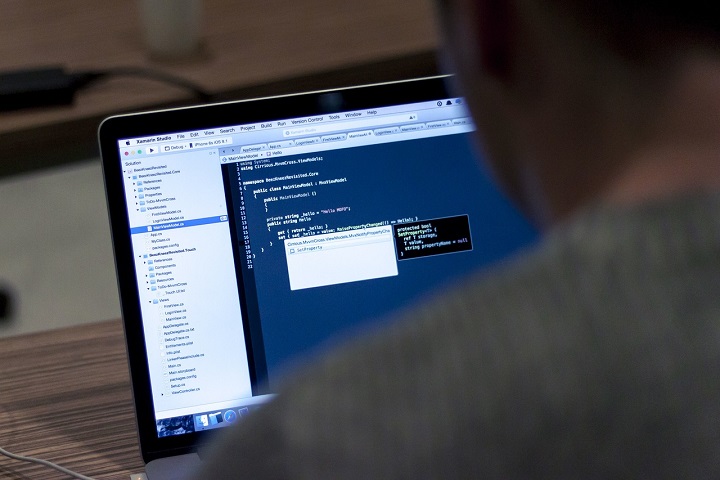Internet
How to keep your motivation when facing programming challenges.
Motivation is a myth. The idea that if something is important to you, you will have the divine motivation to get it done is a myth.

Table of Contents
1. The myth of motivation
Motivation is a myth. The idea that if something is important to you, you will have the divine motivation to get it done is a myth. It urges a mindset that the work you have to put in is conditional to whether you are feeling a drive that you cannot predict, define, or control.
We have all felt motivation. It is that feeling when you get inspired to get started on something. You sit down and surprise yourself how quickly you finished a part of your work. Perhaps you even finally started the passion project you have been thinking about for years.
But the truth is that this feeling is just based on how well you are feeling that day. It can vary based on your sleep cycle. The food you eat, in terms of quality, quantity, and ingredients. It can vary based on your emotional state and what you have been doing lately, as well as the people you have surrounded yourself with.
Working in a java development team taught me that waiting to see how you feel that day is not a way to get a project off the ground. You need consistency, dedication, and so much more than that rare, yet strong, the burst of inspiration, mainly when your team relies on you to play your part in the development process.

2. Why rely on an unpredictable source of inspiration?
This is not to say that you will have days where you are motivated and getting things done more efficiently. And when you do, by all means, grab hold of the flow and ride the wave to get as much done as you can. But when it goes away, do not wait for the next one.
On my first day as a content writer, I finished a three thousand word article on soft skills. And then, I took advantage of the feeling of excitement and quickly typed out my second article.
But only a week later I hit a rut, I had two weeks to write seven more blogs, yet I couldn’t muster the motivation to get started on a single one. And that is when I realized that motivation is not something I can rely on to meet my deadlines and get my assignments done.
Sometimes you just need to keep working past the lack of motivation. More importantly,
you need to establish consistent work practices that are not conditional on motivation, but make the most of it when the drive is here.
3. How to be productive when feeling unmotivated
Working on something you are passionate about is terrific. What else could make you more driven to work on a project than being personally invested in it? But it is not always the case in the software industry. To get a project off the ground, you must also perform tasks and assignments that you are neither passionate about nor particularly inclined to do.
So what do you do when you are met with all the challenges but none of the motivation?

4. Break down the task and assign deadlines
Working on significant assignments can be discouraging, and it is often when issues occur. If it takes several weeks on end to get something done and you have enough, or more time at your disposal, you are likely to run into some of the following traps:
- Pushing it off too much and cutting down your time significantly
- Underestimating how much time you will need to complete the assignment
- Feeling too intimidated even to start
- Overworking the first steps while having to rush the last few—rendering inconsistently in performance and functionality.
Luckily, those are all things you can resolve with a little bit of planning. Start by dedicating milestones for the assignment. Break the project down to smaller pieces, each an important step. Then assign a deadline to each.
This gives you a sense of achievement every step of the way, helps you stay on track and helps you to ultimately meet your deadline by taking care of large amounts of the work already. Not to mention the surge of dopamine you get when you check off that significant milestone on the way to completion. Another perk is that you lower the risks of reaching burnout if you pace out your work realistically.
It is true that unexpected circumstances can occur, forcing you to push the deadlines and releases, but that is normal—this method helps you optimize all the factors that are up to you. Also, by breaking it down, you can release some of that intimidation that comes with a large project. Start with the smallest bit and keep working one task at a time – one deadline at a time until the full project is completed.
5. Switch up your surrounding
Did you know that a sense of novelty of your environment raises the dopamine levels as a result of the focus you put into the activity? While developers are bound to hardware, remote coding may not be an option for everyone. But chances are you are doing a lot of research as a part of the development process.
You can easily take a laptop with the research papers and take notes or brainstorm ideas for the algorithm in a more unusual place. The change of surroundings will boost your focus, extracting much better and long-lasting results from your work. So maybe go to your favorite coffee shop, or to a park on a sunny day, or a library, or any other spot that gives you the conditions you need for work, and you enjoy the experience while getting things done.

6. Just take the first step
This is not something that is new in any way. In the face of significant challenges, the most challenging stage is the first one. So perhaps the first thing to do is to break the project down to milestones.
Then try to take it one at a time. You have two choices: either start with the one that seems the easiest to get into a flow of work or tackle the one that appears the hardest first. Depending on what your goal is, it is understood that you may prefer to get started with one quick, easy task and take it from there. As a developer, you have the knowledge as well as personal preferences to choose the better route to benefit the project and the working process.
In Brian Tracy’s book, “Eat That Frog!: 21 Great Ways to Stop Procrastinating and Get More Done in Less Time,” he goes much deeper into details of how you can get better at facing challenges without necessarily having the motivation to do it. And the perk is minimizing procrastination in the process. The concept is simple. If you eat a frog first thing in the morning, nothing worse could happen for the rest of the day. Once you take off the hardest part of the work, you will have the confidence to keep working.
7. Track your time
Now that is not for everyone. When I refer to tracking time, that means logging in what you did throughout the workday, how much time it took you, as well as how you went about doing it. You can go as much or as little into detail as you see fit.
Why? There are several benefits I observed from experience:
It helps you zero in on the times you are not productive and what activities you are doing instead. Like drinking coffee, talking to colleagues, if you are a smoker, the amount of time that goes into smoke breaks, etc.
It helps you stay accountable and actually work on your priority assignments. You can no longer excuse doing side tasks that should be on the back burner. Your priority work needs to have its own time slot in your calendar at the end of the day.
If you are detailed, you can also track how you are growing. You can look back and see how much time a similar task took you a month ago, two weeks ago, etc. You can see what habits you are developing that are a part of your daily life, that perhaps you didn’t realize. Like taking hours off your day to chat with a friend and or staying too long on sites like YouTube, Reddit, social media, etc. Or maybe you will observe good habits, such as taking the necessary time to be prepared for meetings or doing proper research on your work.
Depending on your work, your practices, your goals, and the job requirements, you will likely approach this differently to fit your own needs. And you should.
I prefer being more thorough with my time tracking. I use google calendar and track my time in 30-hour increments, grouping activities that took me hours, of course. Here is what a couple of entries may look like for me:
- 9:30 am–10 am: Making coffee, Talking to colleagues, planning the day, and writing my to-do’s.
- 10 am-12 am Research for my “facing challenges when lacking motivation” article. Setting up the base of the article and planning my article flow.
- 12 pm–12:45 pm: Lunch
- 12:45 – 2:30 pm: Writing for “challenges and motivation” article
As you see, you do not only track your work-related activities but your overall patterns of behavior. I urge you to try this, as it has brought me a level of self-awareness. The process has helped me zero in on the habits I need to change or optimize not only to be more productive but doing it by cultivating healthy habits first and foremost.
8. Motivation is excellent, but…
It is simply not reliable. When working on a project, you need to stay on track, and you need to be consistent. Motivation does happen and can be a great way to kickstart your work. From then on, you need to control the process and have enough control over your actions to not let a plunge in motivation affect your overall productivity.
How do you tackle development challenges when motivation is low? Which tip was the most helpful to you? Share this article if you believe it is helpful!
-

 Instagram4 years ago
Instagram4 years agoBuy IG likes and buy organic Instagram followers: where to buy them and how?
-

 Instagram4 years ago
Instagram4 years ago100% Genuine Instagram Followers & Likes with Guaranteed Tool
-

 Business5 years ago
Business5 years ago7 Must Have Digital Marketing Tools For Your Small Businesses
-

 Instagram4 years ago
Instagram4 years agoInstagram Followers And Likes – Online Social Media Platform















